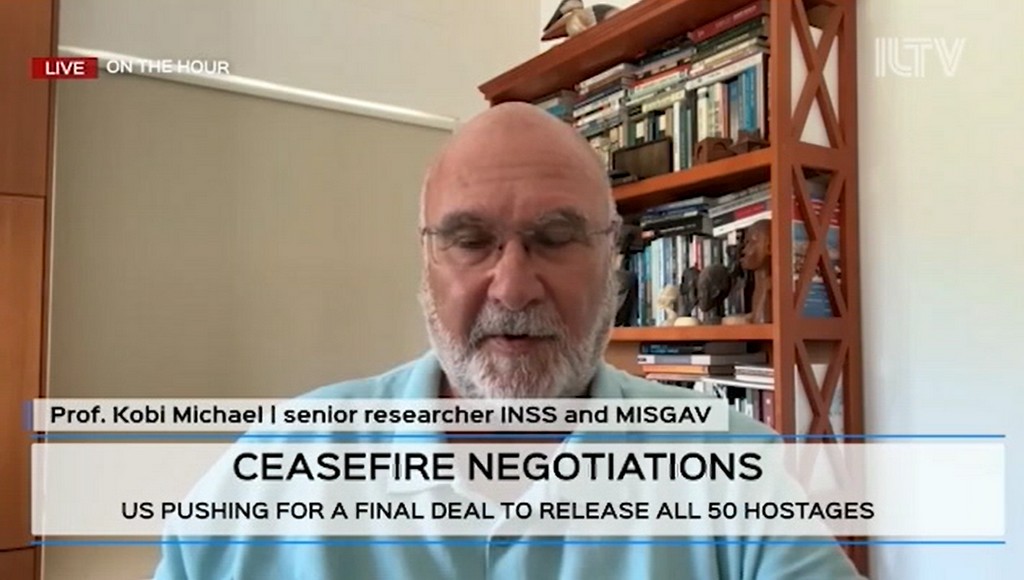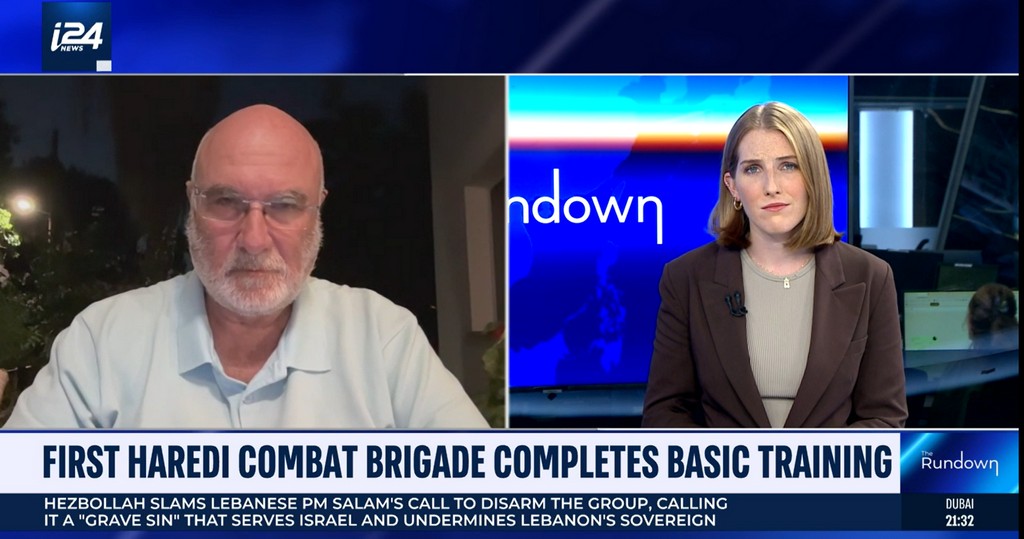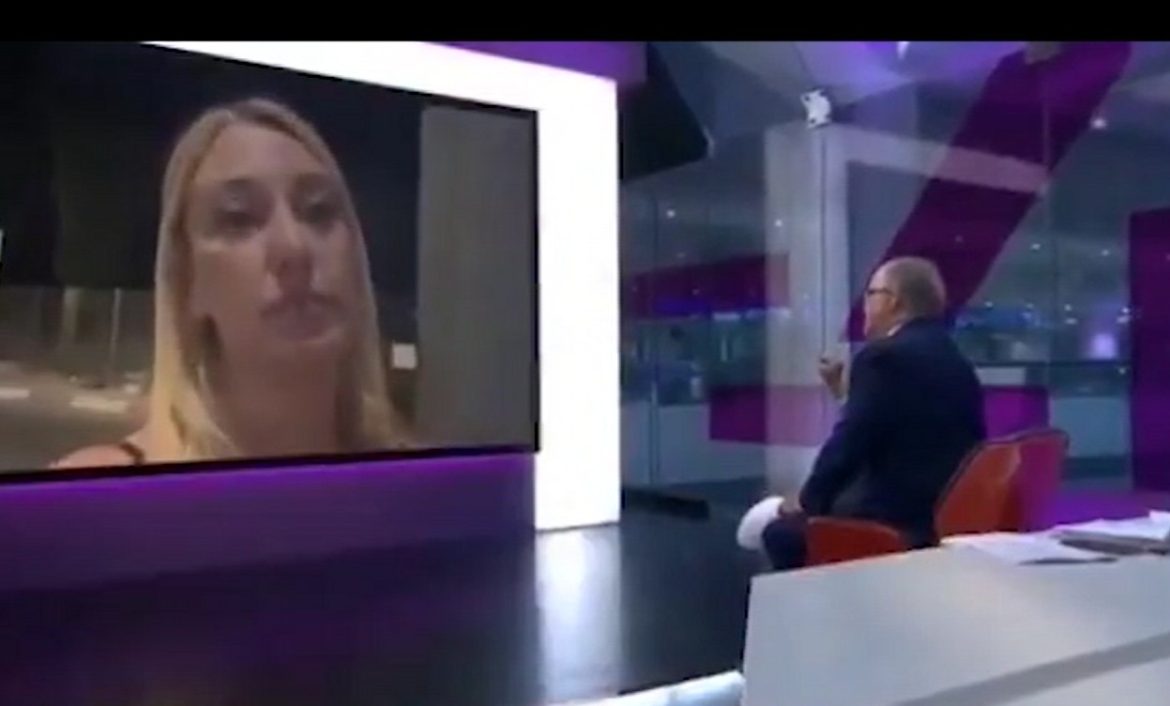In the Media
Prof. Kobi Michael:The interest of Qatar is not only that Hamas remains in power in the Gaza Strip, but that Hamas will eventually become the hegemonic factor in the entire Palestinian arena. They are serving Hamas’s agenda and helping Hamas pave the way towards taking over the Palestinian Authority.
This effort is strongly supported by Turkey, which along with Qatar, is one of the biggest patrons of the Muslim Brotherhood movement. Turkey echoes the Hamas narrative, but it adds more layers that are originally Turkish, citing President Erdoğan’s comparisons of Israel to Nazi Germany. There is a well-oiled machine here. Hamas is the driving factor. The amplifying factor is Qatar and Turkey. And then if we go up another level, we see that there is a cognitive effort of the entire axis of resistance led by Iran.
Published in JNS, August 12, 2025.
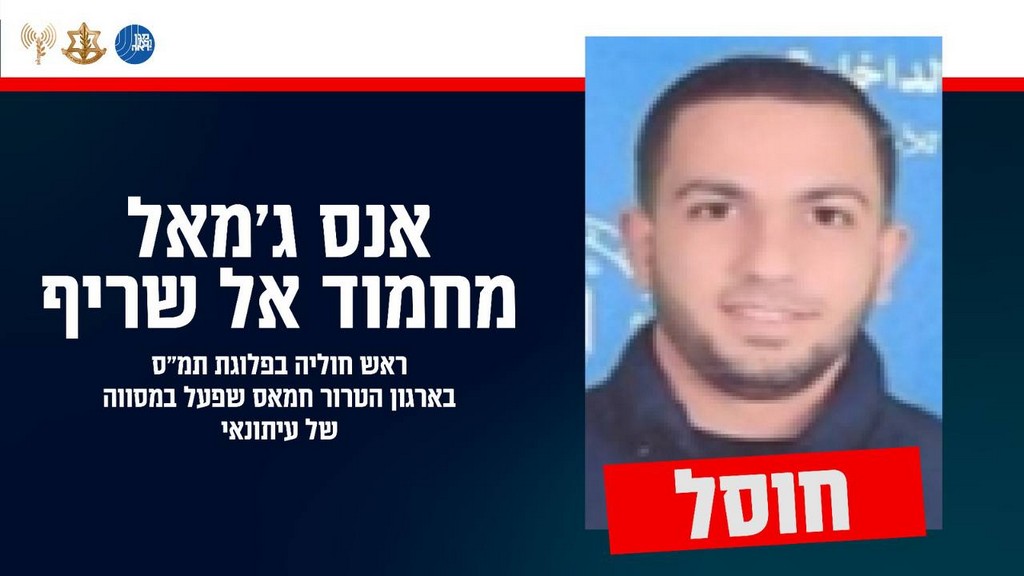
Prof. Kobi Michael:Israel cannot end the war, in my view, where Hamas remains on its feet as an effective sovereign power or an organized military force in the Gaza Strip. Even if negotiations resume and lead to a limited hostage release and ceasefire, the core gaps between Israel and Hamas are unbridgeable. Without dismantling Hamas entirely, we will inevitably find ourselves back in another violent cycle. The only valid alternative is to occupy the entire Gaza Strip, dismantle Hamas, and establish a temporary military administration until an alternative governance can take control.
The full interview took place on ILTV, on August 10, 2025.
Meir Ben Shabbat: I assume there is a combination of considerations here — some related to foreign policy, others to domestic politics — but the basis is still the naive belief that a Palestinian state is the right way to solve the conflict.
From the perspective of French President Emmanuel Macron, the initiative itself is what matters, not its content or chances of success.
It’s doubtful whether he has considered the consequences this might have, even within the Palestinian camp itself.
Published in Fox News, August 09, 2025.
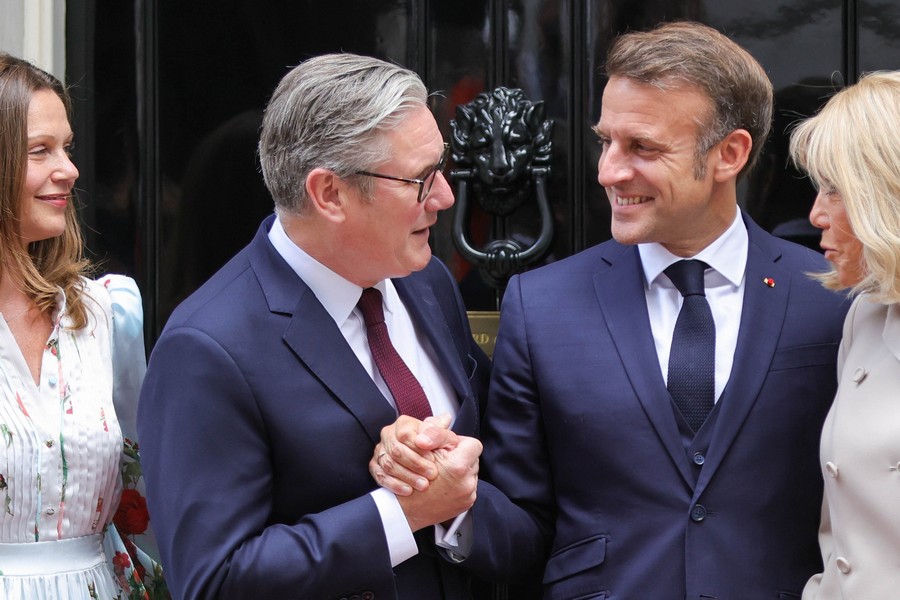
Prof. Kobi Michael: It looks like the government has already decided. They are going for full occupation of the Gaza Strip. The only real alternative was to go for an agreement on Hamas’s terms, which means to surrender.
Published in The Washington Free Beacon on August 8, 2025.

Prof. Kobi Michael: It might be considered a success but a very partial one, and certainly not a success without risks for the IDF. We must remember that, while service and equal service is an important value that should be shared by all sectors of Israeli society, including the ultra-Orthodox, we are talking here about a very isolated and unique unit, where there is more than one source of authority.
In every other IDF unit, there is a single, ultimate source of authority: the IDF and its commanding officers. Here, in addition to that, there is also a rabbinical source of authority. I think this creates a potential for future conflict.
Secondly, the unique characteristics of this brigade ultimately excluded women. That exclusion stands in contrast to another core value — the value of gender equality — which is not only central to the IDF, but to Israeli society as a whole.
At the end of the day, I am not sure this brigade will truly create a breakthrough in increasing the number of ultra-Orthodox recruits joining the military.
The full interview took place on Channel I24, on August 6, 2025.
Prof. Kobi Michael: Not only did human rights organizations and many media outlets base their faulty reports on information published by Gaza’s Ministry of Health, which is run by Hamas, they also did not take the nature of Hamas seriously.
Hamas is not the most reliable source in the world. The international media and other sources do not consider the interests of Hamas, or its strategy, and they do not seem to acknowledge that Hamas wants a chaotic situation in the Gaza Strip. Hamas wants there to be many casualties among Palestinian civilians, because it serves their interests.
Just to listen to what Hamas leaders have been saying since October 7. They have promised to repeat October 7 again and again, they have called on the Arab world to join the armed resistance against Israel and on the Arab public to pressure their regimes.
They have also said publicly, and loudly, that they have no problem sacrificing another 100,000 Palestinian civilians for the sake of the victory.
Published in Fox News, August 04, 2025.
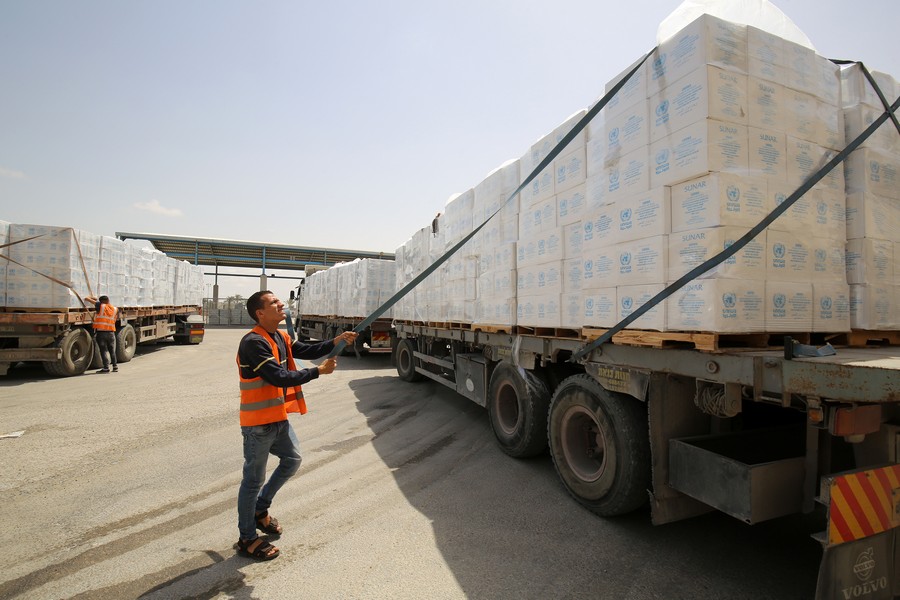
Prof. Kobi Michael: Hamas is not the most reliable source in the world. The international media and other sources do not consider the interests of Hamas, or its strategy, and they do not seem to acknowledge that Hamas wants a chaotic situation in the Gaza Strip. Hamas wants there to be many casualties among Palestinian civilians, because it serves their interests.
Just to listen to what Hamas leaders have been saying since October 7 – They have promised to repeat October 7 again and again, they have called on the Arab world to join the armed resistance against Israel and on the Arab public to pressure their regimes. They have also said publicly, and loudly, that they have no problem sacrificing another 100,000 Palestinian civilians for the sake of the victory.
Published in AOL, August 04, 2025.
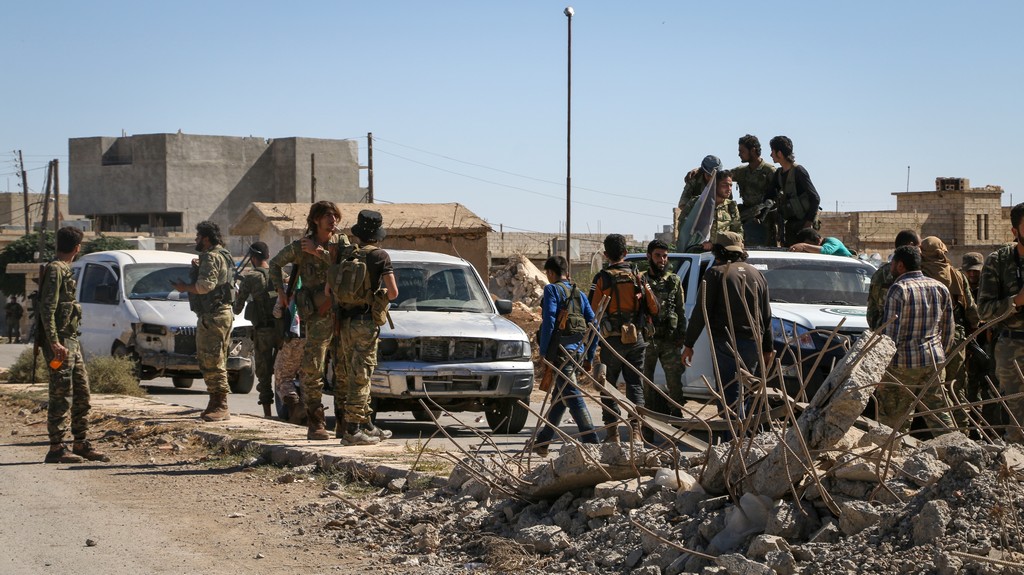
Meir Ben Shabbat: Unfortunately, some countries fall prey to Hamas’ manipulation. The world finds it easier to identify with the suffering of the weaker side. Israel gains sympathy only when its mutilated citizens’ bodies dominate news broadcasts, and even then, it is short-lived. The horrors of October 7 were quickly forgotten. Leaders criticizing Israel must understand that their conduct encourages terror elements to exploit civilian suffering. Accepting demands to halt the war because of civilian casualties—caused by terror groups—only strengthens that method, which will not be limited to Gaza.
Published in Arutz Sheva, August 1, 2025.
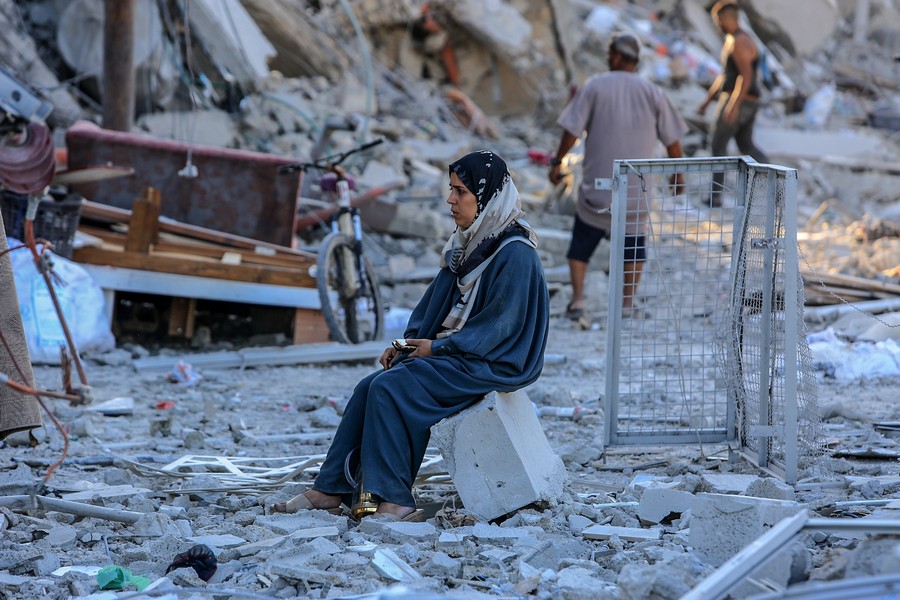
Ruth Wasserman Lande: If you are willing to have your daughters 30 metres away from terrorists who have said again and again, very, very unashamedly, that they will carnage, massacre, rape and burn them because they are British or Christian or whatever it is that you belong to. And you feel that your government should not do anything at all. Plus, your government would be giving food to those specific people, who wish and claim and claim again that they will ravage, massacre, burn and rape your daughters. And you feel that this is a normal situation and you feel it is correct to give them a state which they had since 2005. They had independence. And what did they do with that independence? They carnage their own territory.
The interview took place on Channel 7 on July 31, 2025.





